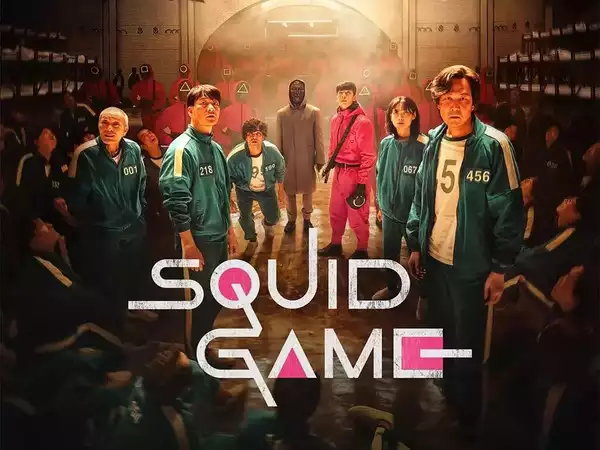When the first season of Squid Game premiered on Netflix in 2021, it became a cultural phenomenon almost overnight. The show’s gripping narrative, intense performances, and clever social commentary struck a chord with audiences worldwide, cementing its status as one of the most talked-about series of the year. Now, with the much-anticipated release of Squid Game Season 2, expectations were sky-high. However, the reception so far suggests a mixed bag of reviews, with many viewers lamenting that the new season doesn’t quite capture the magic of its predecessor. Follow us at Gen Z 100+ Merry Christmas Wishes, Messages, Greetings and Quotes.
Squid Game
The original Squid Game captivated audiences with its unique premise: a deadly survival competition disguised as a children’s game, designed to prey on the vulnerabilities of desperate individuals. The show offered a razor-sharp critique of societal inequality and the lengths people go to escape their hardships. Its characters, from Seong Gi-hun’s reluctant hero to Kang Sae-byeok’s hardened resolve, brought depth to a narrative that oscillated between hope and despair. This combination of emotional storytelling and stark commentary on class disparities became the hallmark of its success.

- Squid Game Season 1 – 95% critic score, 84% audience score
- Squid Game Season 2 – 83% critic score, 63% audience score
With Season 2, the creators promised to expand the universe, delving deeper into the enigmatic Front Man and the mysterious organization behind the games. The season introduced new characters, fresh challenges, and heightened stakes. But despite these efforts, the series seems to have lost some of its edge, according to critics and fans alike.
Related: Kim Kardashian’s ‘Santa Baby’ ‘disturbing’ and ‘weird’ by fans
Related: Christopher Nolan’s Next New Film Is An Adaptation Of Homer’s ‘The Odyssey,
Squid Game on Netflix
Netflix’s decision to greenlight Squid Game proved to be a masterstroke, as the series became the streaming giant’s most-watched show ever, amassing over 1.65 billion hours of viewing in its first 28 days. Its global appeal transcended language barriers, with viewers from all corners of the world engaging in debates about its themes, characters, and the ethical dilemmas it presented.

Season 2’s release was met with unparalleled anticipation, with Netflix’s marketing machinery going into overdrive to build excitement. Trailers teased a darker, more intricate storyline, while promotional events re-created some of the games, drawing fans into the Squid Game universe. Despite this initial buzz, however, the season’s reception suggests that maintaining the momentum of such an unprecedented hit is no easy feat.
- Squid Game season – 2.2 billion hours viewed, 265.2 million views
- Stranger Things season 4 – 1.83 billion hours viewed, 140.7 million views
- Wednesday season 1 – 1.72 billion hours viewed, 252.1 million views
- Dahmer – 1.03 billion hours viewed, 115.6 million views
- Bridgerton season 1 – 929.3 million hours viewed, 113.3 million views
- Bridgerton season 3 – 846.5 million hours viewed, 106 million views
- The Night Agent season 1 – 803.2 million hours viewed, 98 million views
- The Queen’s Gambit – 746.4 million hours viewed, 112.8 million views
- Money Heist: Part 4 – 710.2 million hours viewed, 106 million views
- Fool Me Once – 629 million hours viewed, 98.2 million views
Season 2 Struggles to Keep Up
Critics and audiences have been vocal about their mixed feelings toward Squid Game Season 2. While some praise the ambitious expansion of the storyline and the deeper exploration of its lore, others feel the season lacks the emotional weight and raw intensity that defined the original.
One of the primary critiques revolves around character development. Season 1’s cast was lauded for their relatability and the emotional investment they evoked. Season 2, on the other hand, introduces several new faces, but their arcs often feel underdeveloped, leaving viewers struggling to connect with them on the same level. Additionally, some fans argue that the pacing feels uneven, with certain episodes dragging while others feel rushed.
Another significant point of contention is the games themselves. While Season 1’s challenges were both inventive and horrifyingly thrilling, Season 2’s games seem to lack the same level of ingenuity. Critics note that the show relies more heavily on spectacle this time, occasionally at the expense of its underlying message.
Nevertheless, not all reviews are negative. Many applaud the show’s production values, which have reached new heights, and its willingness to take creative risks. The performances, particularly by returning cast members, have also garnered praise, with some viewers appreciating the exploration of the psychological aftermath of surviving such a traumatic experience.